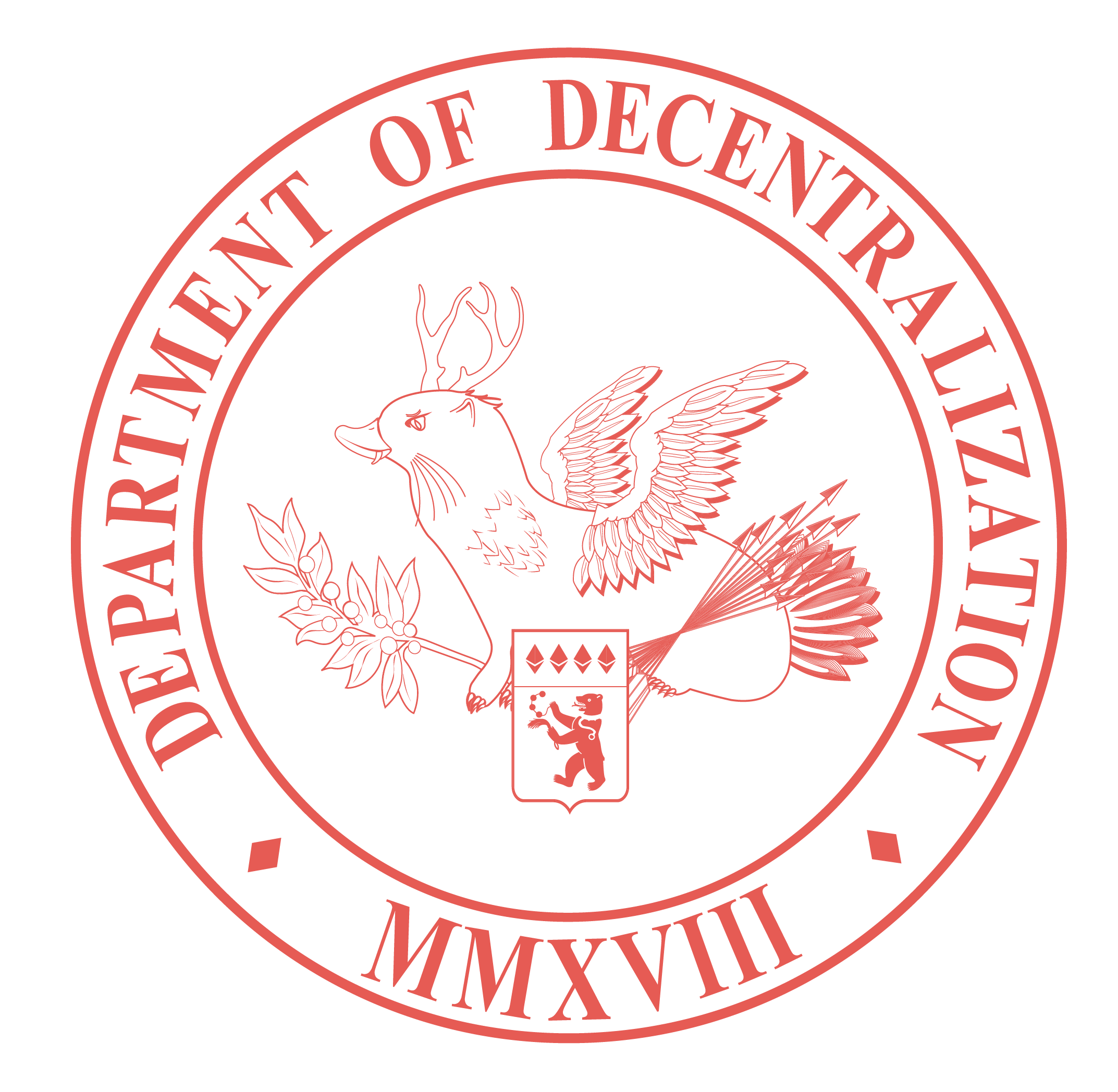
<<M<ANIFESTO
The situation is dire. We have been operating in crisis mode for years now. Established systems are failing, new and old imperialist powers are throwing continents into wars of attrition, global supply chains are collapsing, financial markets are tumbling, healthcare systems are falling apart, education is on a consistent downward spiral — the list goes on.
But there is hope: The soils to grow new ideas have never been more nutritious. It has never been more urgent to double down on new revolutionary concepts and ideas. It is high time to change the world.
Reflecting on the decentralized ecosystems — the very systems designed to solve some of the underlying problems of the failing society — we realize that instead of creating actionable alternatives, we seemingly are:
- reinvigorating hierarchical power structures,
- setting questionable incentives,
- recreating existing failures,
- and hence, are more and more part of the problem.
The blockchain space is going through a multi-dimensional identity crisis.
Arguably, on a philosophical level, the ecosystem lost its shared identity long ago. Do we know what we want to achieve, and are we working towards the same thing? What are our shared values? Where are the red lines? All seems a blur, and everything goes in the always-online, never-stopping economic game machine.
"The folly was in thinking that, in a system that allows for almost anything, people would *not* maximize for their own utility over believing in the mission. To be fair though (and I mean this very seriously) a lot of us aren't exactly clear on *what* the mission is. It seems like it's mainly a lot of people trading shitcoins and jpegs, but we're told this isn't what we're trying to do."
Gwart: on X.
The lack of shared vision or values also results in an identity crisis in the truest sense of the word: How do we deal with identities in decentralized communities? Are personhood verification, KYC, and AML necessary evils? Or are they the hill we are going to die on?
On the Internet, nobody knows you're a dog — On the Blockchain, everybody sees everything.
And again, instead of creating solid alternatives, we seem to be part of the problem. We are developing systems with complex social graphs and are considering incorporating the most private biometrics to prove we are humans. But what for? Universal basic "income" that is funded through venture capital snowball systems that sustain no one except the investors?
Vitalik Buterin argues in his blog"The concept of proof-of-personhood in principle seems very valuable [...]. A world with no proof-of-personhood seems more likely to be a world dominated by centralized identity solutions, money, small closed communities, or some combination of all three." — But do we give up so easily?
It seems the community is breaking off into different silos: How important is privacy? Is something like proof-of-personhood on the blockchain a desirable goal, and, how should it be implemented and enforced?
We want to use our voice in the community to remind everyone that privacy should be a core feature of the technologies we are building.
- Identity is arbitrary.
- Biometrics are not keys.
- Sybils are friends.
- Anonymity loves company.
We find ourselves at the intersection of decentralization, privacy and security research: zero-knowledge cryptography, fully homomorphic encryption, secure multi-party computation — the list goes on. Let's put it to use!
"The magic of cryptography gives us privacy, while the resilience of blockchains allows for global, coordinated, coercion-resistant institutions."
Jarrad Hope: Logos Manifesto.
For this year's ETHBerlin hackathon, we invite you to join the discussion and hack on anti-identity features instead of identity anti-features that boost the individual's privacy.
And, just like last year, we encourage hackers, workshop hosts, and supporters at ETHBerlin04 to focus on the following key attributes:
- Private: There is no need for your name, data, or ID.
- Usable: It has to be accessible and user-friendly.
- Direct: It does not ask for permission.
- Subversive: It transforms established orders and structures of power.
- Social: It empowers people and makes a difference in somebody's life.
- Clandestine: It will not comply.
- Independent: It will not rely on governments, corporates, or investors.
- Impactful: It intends to make a difference.
- Secure: It does not put anyone at risk.
- Libre: It will be free, both as in free speech and free lemonade.
We may only have this one last shot. Let's conspire in Berlin and build the change we want to see!